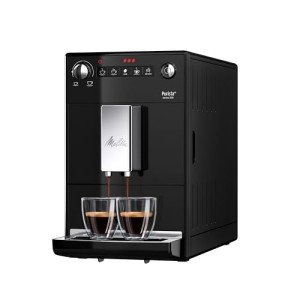Home Use Espresso Machines: A Comprehensive Guide
Espresso machines have actually ended up being a staple in lots of homes as coffee enthusiasts seek to reproduce café-quality brews in the convenience of their kitchens. The rise in popularity has resulted in a varied market filled with numerous designs, functions, and costs. This post intends to supply a useful summary of home use espresso machines, helping readers navigate their choices successfully.
Comprehending Espresso Machines
Espresso machines work by requiring warm water through finely-ground coffee under high pressure, resulting in a concentrated coffee drink known as espresso. There are a number of kinds of espresso machines categorized based upon their developing methods and level of automation. The most typical types consist of:
- Manual Espresso Machines: These require the user to control the pressure and water circulation, enabling a more hands-on coffee-making experience.
- Semi-Automatic Espresso Machines: These use automatic control over water pressure, while the user by hand grinds and tamps the coffee.
- Automatic Espresso Machines: With the push of a button, these machines automatically control the flow of water, making it easier to brew espresso with constant results.
- Super-Automatic Espresso Machines: These all-in-one machines handle grinding, tampering, developing, and even milk frothing, making them perfect for users looking for convenience.
- Capsule or Pod Machines: These use pre-packaged coffee pods to create espresso with minimal effort, however they restrict choice in brewing strategies and tastes.
Table: Comparison of Espresso Machine Types
| Type | Control Level | Ease of Use | Cleaning Level | Suitable For |
|---|---|---|---|---|
| Manual | User-controlled | Moderate | High | Coffee perfectionists |
| Semi-Automatic | Partial automation | Moderate | Moderate | Home baristas |
| Automatic | Totally automated | Easy | Low | Busy individuals |
| Super-Automatic | Fully automated | Extremely easy | Really low | Convenience candidates |
| Capsule/Pod | Completely automated | Extremely easy | Really low | Casual drinkers |
Secret Features to Consider
When picking a home use espresso machine, it's vital to consider numerous features that can considerably impact the quality of espresso and user experience.
- Pressure: Look for machines that provide a minimum of 9 bars of pressure, as this is considered optimal for brewing espresso.
- Boiler Systems: Single vs. dual boiler systems determine temperature stability and the ability to brew espresso and steam milk simultaneously.
- Grinder: Integrated grinders enable newly ground coffee, which improves taste. Think about machines with adjustable grind settings.
- Milk Frother: For those who delight in cappuccinos and lattes, a built-in steam wand or automatic frother is essential.
- Size and Design: Consider your kitchen space and visual choices. Machines can be found in different sizes, from compact to large setups.
- Cost: Home espresso machines can range from a couple of hundred to numerous thousand dollars, so it's vital to develop a budget before exploring alternatives.
Advantages and disadvantages of Home Use Espresso Machines
| Pros | Cons |
|---|---|
| Benefit of brewing coffee in your home | Preliminary financial investment can be high |
| Quality of espresso is often superior | Needs some ability, specifically with manual machines |
| Capability to experiment with flavors | Upkeep and cleansing can be labor-intensive |
| Can conserve money in the long run | Not all machines will fit every coffee choice |
Upkeep and Cleaning Tips
Keeping an espresso machine is essential for extending its life and ensuring consistent brew quality. Here are some beneficial ideas:
- Regular Descaling: Minerals from water can build up in the machine. Descale every 1-3 months, depending upon water hardness.
- Daily Cleaning: Rinse portafilters, baskets, and steam wands after each use to prevent coffee oils from constructing residue.
- Use Filtered Water: This can assist lower mineral accumulation and enhance the taste of coffee.
- Replace Gaskets and Seals: These components might break over time and must be changed to maintain pressure and efficiency.
- Read the Manual: Each machine has specific care guidelines; following these will guarantee longevity.
Frequently Asked Questions About Home Use Espresso Machines
Q1: What is the best budget espresso machine?The best budget espresso machine frequently depends upon specific requirements, but models like the DeLonghi EC155 or the Breville Bambino are popular among users for offering excellent value. Q2: How long do home espresso machines typically last?With correct upkeep, home espresso machines can last anywhere from 5 to 15 years, depending upon the quality of the machine and frequency of use. Q3: Can I make coffees and lattes with any espresso machine?While most espresso machines can make coffees and lattes, having a reliable
steam wand or frother is essential for attaining the ideal milk texture.
Q4: Are super-automatic machines worth the investment?For try these guys who focus on benefit and quick brewing, super-automatic machines can be worth the financial investment, though they may lack some customizability in brew strength and flavor. Q5: What types of coffee beans are best for espresso?While individual choice plays a function, beans identified as" espresso "blends are generally roasted darker, producing rich flavors and a velvety texture when brewed.
Buying a home espresso machine can change the everyday coffee routine into something special, raising home brews to café quality. By understanding the various kinds of machines, key functions to consider, maintenance requirements, and weighing the
benefits and drawbacks, consumers can make educated decisions that suit their specific preferences. As the espresso culture continues to grow, no matter the option, every brew can be a scrumptious experience waiting to be enjoyed.

